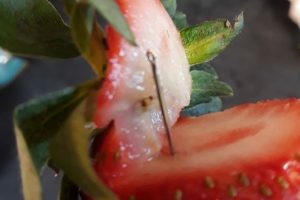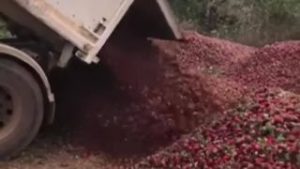The British Ministry of Justice has announced new rules to stop British holidaymakers in Spain from scamming tour operators with fake food poisoning claims.
 Under the crackdown, a limit will be set on the legal costs that can be claimed in overseas package travel claims. This will stop claims management companies from seeking legal costs that are out of proportion to the damages sought – a loophole that has often pushed tour operators to settle out of court.
Under the crackdown, a limit will be set on the legal costs that can be claimed in overseas package travel claims. This will stop claims management companies from seeking legal costs that are out of proportion to the damages sought – a loophole that has often pushed tour operators to settle out of court.
In a press release, the Ministry of Justice said the change “would mean tour operators would pay prescribed costs depending on the value of the claim and length of proceedings, making defense costs predictable and assisting tour operators to challenge bogus claims.”
According to court documents, phony food poisoning claims may have cheated Spanish hotels out of as much as €60 million since 2014. The scam took off in the summer of 2016, with one hotel chain receiving 273 claims requesting compensation for 700 people.
The scam was simple enough. The tourist buys a travel package with any travel agent and stays at a Spanish hotel that includes all meals in the price. Back in Britain after the vacation, the tourist uses a claims-management company to file a complaint against the company that organized the trip, alleging that the hotel meals made him/her ill.
Current British consumer laws barely require the claimant to produce any evidence. No doctor’s report is necessary, and claims may be filed up to three years after the event.
Since it is hard to prove that the client did not get sick, and faced with high legal fees if the case goes to court, the tour operator accepts the claim, then pass on the cost to the Spanish hotels as per their contract, in which the latter accept responsibility for all damages.
In 2017, the Spanish Civil Guard arrested seven British nationals for their involvement in the scam.
According to the Association of British Travel Agents (ABTA), the number of claims jumped from 5,000 in 2013 to 35,000 in 2016 – an increase of 500%.
“Claiming compensation for being sick on holiday, when you haven’t been, is fraud,” said Justice Minister Rory Stewart. “This behavior also tarnishes the reputation of British people abroad. That is why we are introducing measures to crack down on those who engage in this dishonest practice.”
The Ministry of Justice says the new rules will come into effect shortly – well before summer begins.
In early April, a young couple who demanded compensation after claiming they fell ill on holidays were caught out thanks to their social media photos.
Chelsea Devine, 21, and Jamie Melling, 22, from Liverpool in the UK, went on a 10-day all-inclusive holiday to Benidorm, Spain in September 2015.
The holiday was booked with travel and tourism company TUI, and they stayed at the Levante Beach Apartments during their trip.
In May 2016, the couple both claimed they had contracted serious food poisoning from food and drinks consumed during their stay, and each demanded $4500 in compensation from TUI.
The pair claimed they were seriously ill during their holiday, and that the sickness lasted for weeks.
However, Liverpool County Court heard their social media accounts revealed a variety of happy, poolside selfies, which caused judge Sally Hatfield QC to brand them both as “fundamentally dishonest”.
They recently received a record fine of more than $27,000 for their fraudulent claim.
According to The Sun, Recorder Sally Hatfield QC said there was no evidence the pair had been ill during their trip.
In October 2017, UK couple Deborah Briton, 53, and Paul Roberts, 43, were jailed for making fake holiday sickness claims in a landmark case.
 According to Harvey Solomon-Brady of The Sun, police in Spain have arrested 18 people for selling filthy mojitos riddled with E.coli bacteria to unsuspecting tourists on the beaches.
According to Harvey Solomon-Brady of The Sun, police in Spain have arrested 18 people for selling filthy mojitos riddled with E.coli bacteria to unsuspecting tourists on the beaches.








